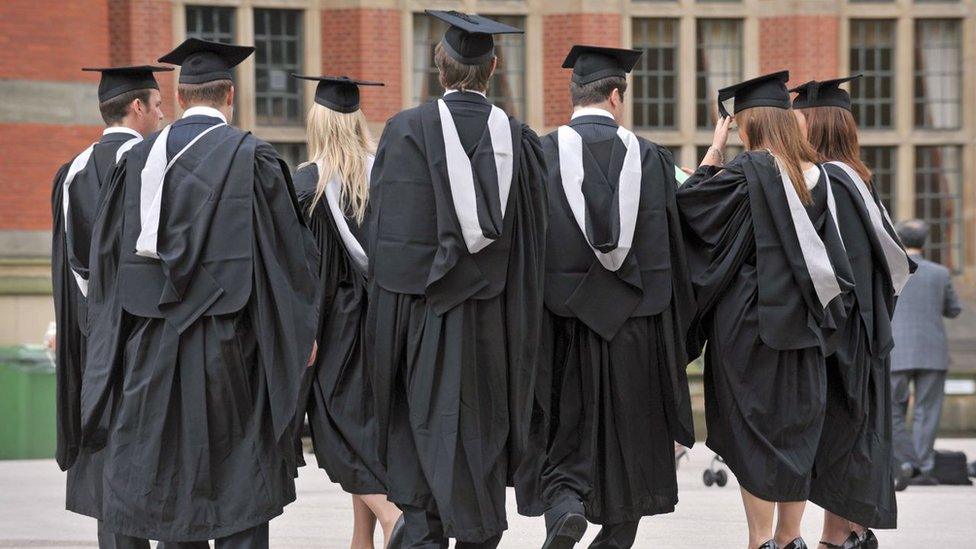Queen's University: 759 students will not have degrees confirmed
- Published
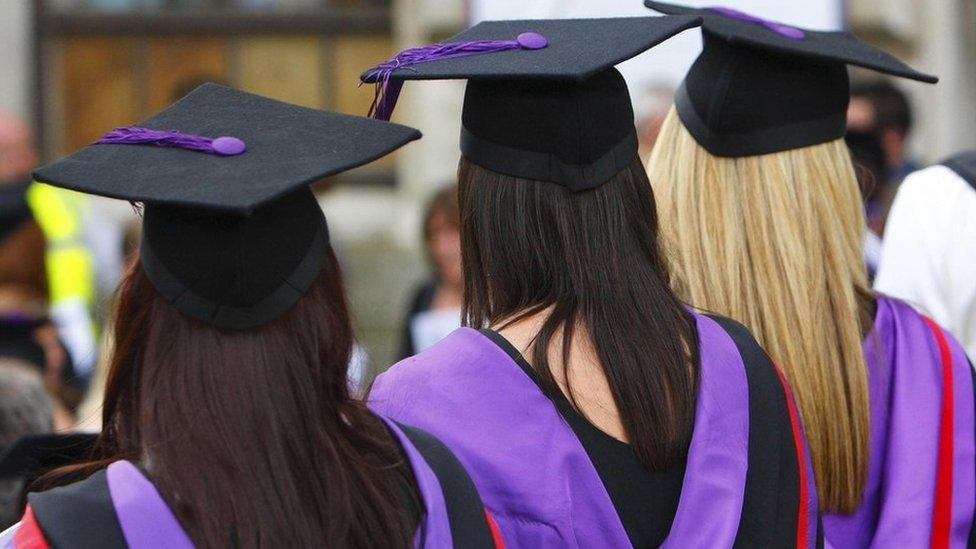
Students may not be awarded a degree with a title or result
More than 750 students at Queen's will not get their degrees finally confirmed as planned this summer.
The university has provided updated figures after it warned that industrial action would affect some graduations.
The 759 affected final-year students will be awarded degrees, but may not have either their degree title or their result or classification confirmed.
The situation is due to industrial action by some staff which includes a boycott of marking and assessment.
Members of the University and College Union (UCU) at universities across the UK have been engaged in long-running industrial action over pay, working conditions and pensions.
That has included a number of strikes by some staff at universities across the UK, including in Northern Ireland.
The marking boycott means some UCU members are not taking part in things like invigilating exams, or marking exam papers or assessments.
'Futures at risk'
Aoibhinn Graham is a final-year Law with Spanish student and has experienced strikes throughout her time at QUB. She said this year has been particularly "disruptive and hectic".
Communication from the university has been "very shoddy", she said.
On Wednesday, she was informed her degree confirmation would be affected due to UCU's industrial action.
Students awaiting their results on Thursday will find out how many credits remain unmarked, determining to what extent their degrees are confirmed.
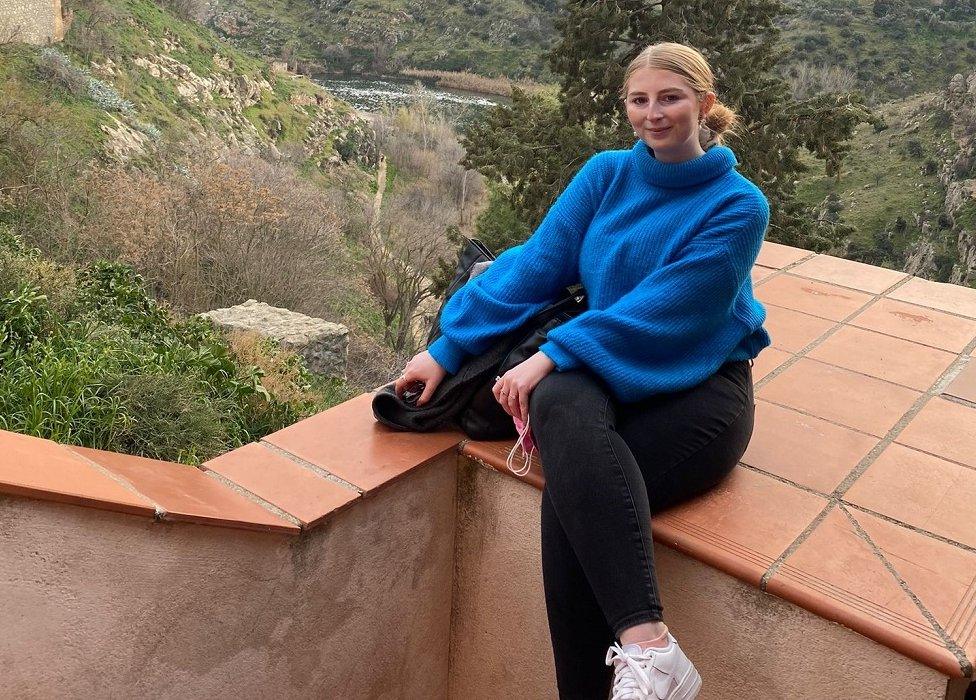
Aoibhinn Graham is among the 759 students whose degree has been affected
Accredited degrees such as law and psychology are said to have their marking disrupted.
"They are hard enough industries to get into", Ms Graham explained.
'No end'
She said there is now concern among graduates whether they will be at a disadvantage entering the job market, while some international students were concerned they will face visa issues when applying for work.
"It's probably going to leave Queen's students at a huge disadvantage compared to other law graduates from unaffected universities who can provide accredited degrees with classifications while we are unable to provide the same," she said.
Aoibhinn told BBC News NI there was "no set end to [UCU's] boycott".
"Although, there is a meeting with the head of school tomorrow so we might be able to get some clarification on issues, but I'm not holding out much hope given the dismal communication from Queen's so far."
She said many students supported the strike but she felt people's futures were now at risk.
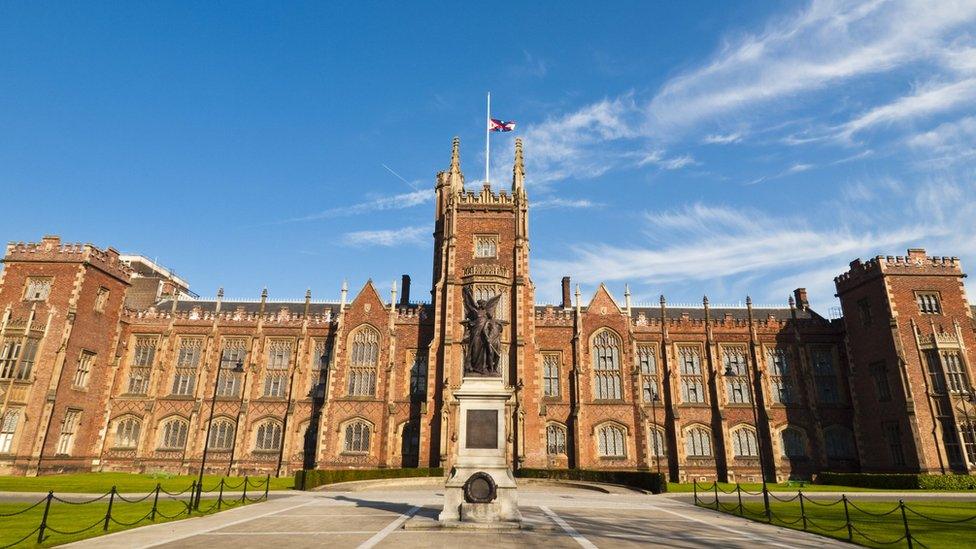
Graduation ceremonies at Queen's University are due to begin on 29 June
Around 4,200 students are set to graduate with undergraduate or post-graduate qualifications from Queen's University, Belfast (QUB) this summer.
The first graduation ceremony is due to take place on 29 June.
Aoibhinn questioned why this date couldn't be pushed back to allow more time to resolve the marking issues.
In response, the university said it had "communicated extensively with students, individually and collectively, both in person and using a range of other channels".
"We have also opened a helpline to provide guidance and support," a spokesperson said. "We proactively shared any information we had as soon as possible and have worked relentlessly to limit the impact of this action and will continue to do so.
"We have been engaging with employers to ensure that the pending degree classification will not affect employment prospects."
'Upset and angry'
The Pro-Vice Chancellor at QUB, Prof Stuart Elborn, said that the university had already spoken to some of 759 students impacted by the news.
"Students are understandably disappointed, many are upset and some are angry and those are all understandable reactions," he told BBC News NI.
"Our students have worked very hard for these degrees, some of them have worked through the Covid pandemic and we are doing everything we can to mitigate this.
"Currently we're working very hard to ensure that all of our students who possibly can graduate will graduate.
"But some of those students will not have the name of the degree that they anticipated or will not have the classification.
"Those will be corrected or changed once the marking and assessment boycott has been finished."
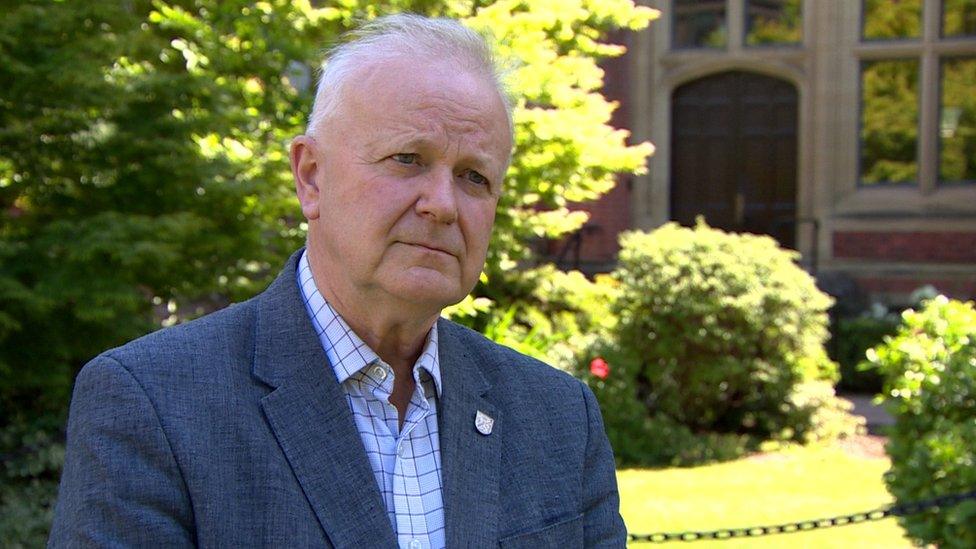
Prof Stuart Elborn said students were "understandably disappointed"
Students in subjects at Queen's like architecture, law and psychology are likely to be most affected as their final degree marks include a level of professional accreditation.
"Perhaps the two largest are psychology and law and we're working with both the accrediting bodies and the student groups to ensure that we mitigate as much as possible so that students can continue in study or into work," Prof Elborn said.
The affected students will have their final degree titles and classifications confirmed by QUB when their marks can be finalised.
However that will be dependent on the wider dispute between the UCU and the Universities and Colleges Employers Association (UCEA) being resolved.
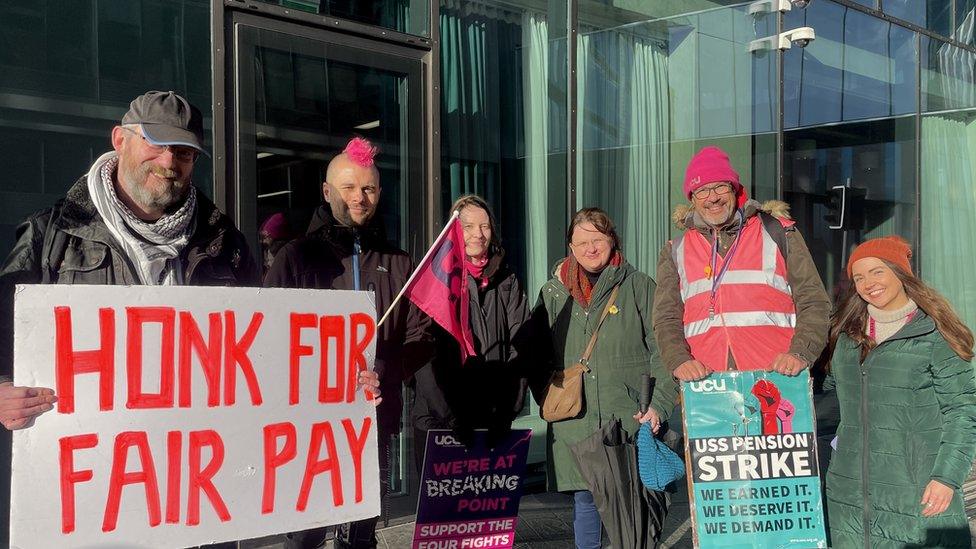
The dispute between the UCU and university employers has been a long-running one
The UCU recently told BBC News NI they were "angered at the continuing lack of progress in resolving a pay dispute that has been ongoing for five years".
"The employers' organisation (UCEA) need to return to negotiations and management at Queen's need to recognise that a 25% cut in staff pay in real terms over the past 10 years is untenable," they said.
"Staff are desperate for a solution and horrified by the damage being done by university management to the students progression and the value of their degrees."
But the UCEA, in a statement issued on Monday, said: "There is simply no need for UCU's leaders to try and pursue a failing Marking and Assessment Boycott when employers are at the table to negotiate, as they have been for months.
"Employers urge UCU to provide clarity and honesty to its own members, particularly those who are attempting the boycott to target students.
"Employers remain committed to beginning negotiations on pay related matters as soon as the marking and assessment boycott is called off."
The stalemate could hit graduations at universities elsewhere in the UK, but as graduations at QUB take place earlier than those at most other institutions the effects are being felt there first.
- Published8 June 2023
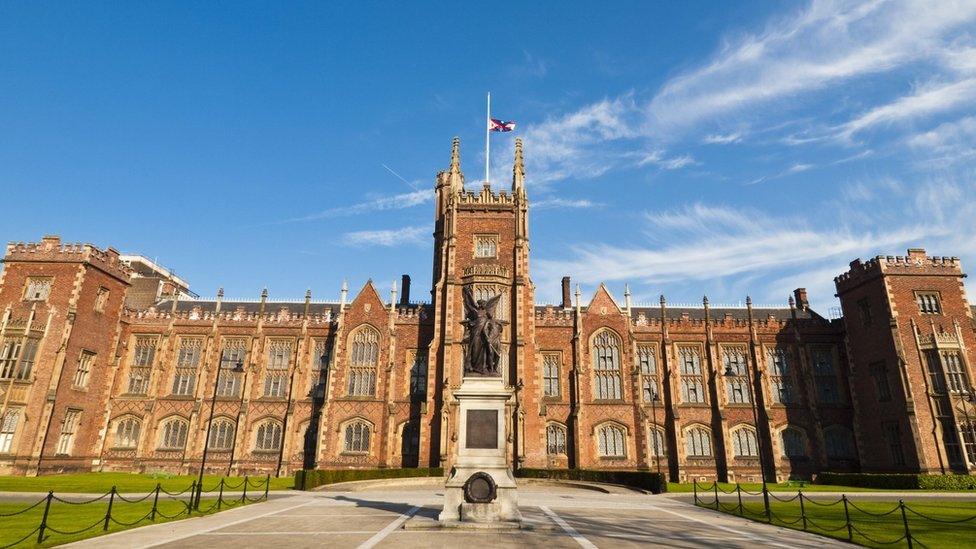
- Published12 June 2023
